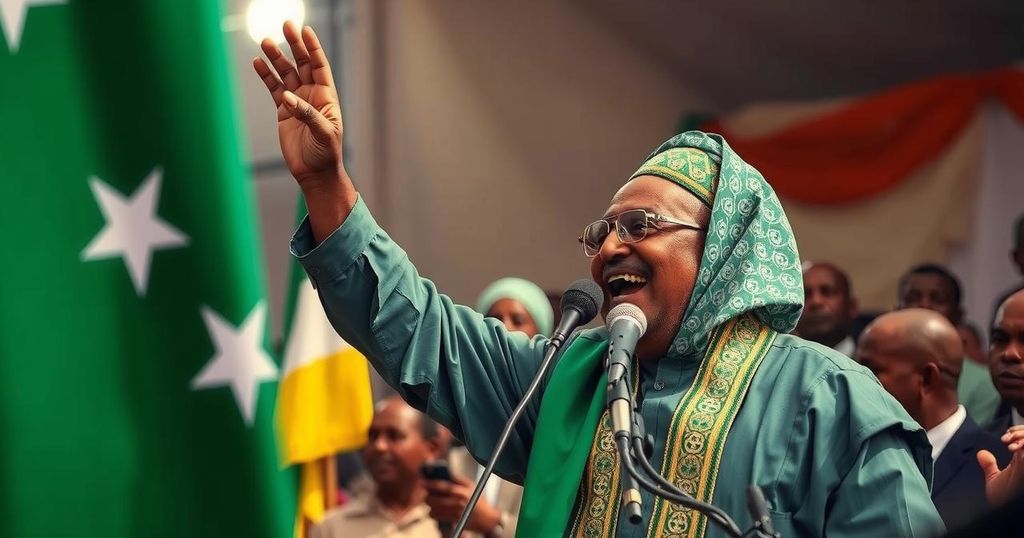Abdullahi Elected President of Somaliland, Promises Economic and Diplomatic Renewal

Abdirahman Mohamed Abdullahi has won the presidential election in Somaliland, securing nearly 64% of the votes against incumbent Muse Bihi Abdi. His election brings hope for economic revitalization and renewed efforts for international recognition. The victory follows a two-year delay attributed to funding issues and highlights Somaliland’s unique position as a stable yet unrecognized state since its 1991 declaration of independence from Somalia.
Abdirahman Mohamed Abdullahi, commonly referred to as Irro, has emerged victorious in the presidential election held in Somaliland, a self-declared independent region of Somalia. The election results, announced by the Somaliland National Electoral Commission (NEC), indicate that Abdullahi of the Waddani Party secured approximately 64 percent of the vote, decisively defeating the incumbent president, Muse Bihi Abdi, who garnered about 35 percent. Abdullahi campaigned on promises to revitalize the economy and intensify efforts aimed at obtaining international recognition for Somaliland. The election took place amidst significant political and economic issues that had delayed the process for over two years. Somaliland, which unilaterally declared independence from Somalia in 1991 amidst conflict, has established a stable governance structure, carving out a political identity distinct from the struggles of Somalia. Nevertheless, the region faces the persistent challenge of international non-recognition, hindering its access to international finance and limiting travel possibilities for its citizens. In addition to the electoral outcome, the newly elected government under Abdullahi is expected to navigate complex political relationships, particularly a controversial proposed agreement with Ethiopia that would allow the latter access to sea routes in exchange for potential support in securing international recognition. This agreement has drawn criticism from Somalia, which views it as an infringement on its sovereignty. Moreover, there is optimism in Somaliland that the incoming U.S. administration might reassess its approach towards recognizing the region, reflecting a shift in perspectives among some U.S. officials regarding Somaliland’s right to self-determination.
Somaliland declared its independence from Somalia in 1991, establishing a stable political entity amidst the chaos that engulfed Somalia. Over the years, Somaliland has built its own government and infrastructure but remains unrecognized internationally, which complicates its ability to access financial resources and engage in international relations. The region’s quest for legitimacy gained attention as the recent presidential elections reflected a broader desire for stability and recognition. The new administration, led by Abdullahi, faces expectations to not only sustain the regional economy but also navigate a delicate diplomatic landscape involving neighboring Ethiopia and Somalia.
Abdirahman Mohamed Abdullahi’s election as president of Somaliland signifies a critical juncture in the region’s political landscape, marked by aspirations for economic recovery and international recognition. Despite a history of political stability, Somaliland’s lack of global acknowledgement presents ongoing challenges for its governance and economic development. The new administration’s handling of international relationships and internal prospects will be crucial in shaping Somaliland’s future trajectory in the years to come.
Original Source: www.aljazeera.com







